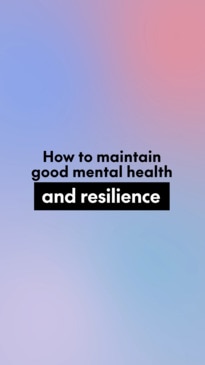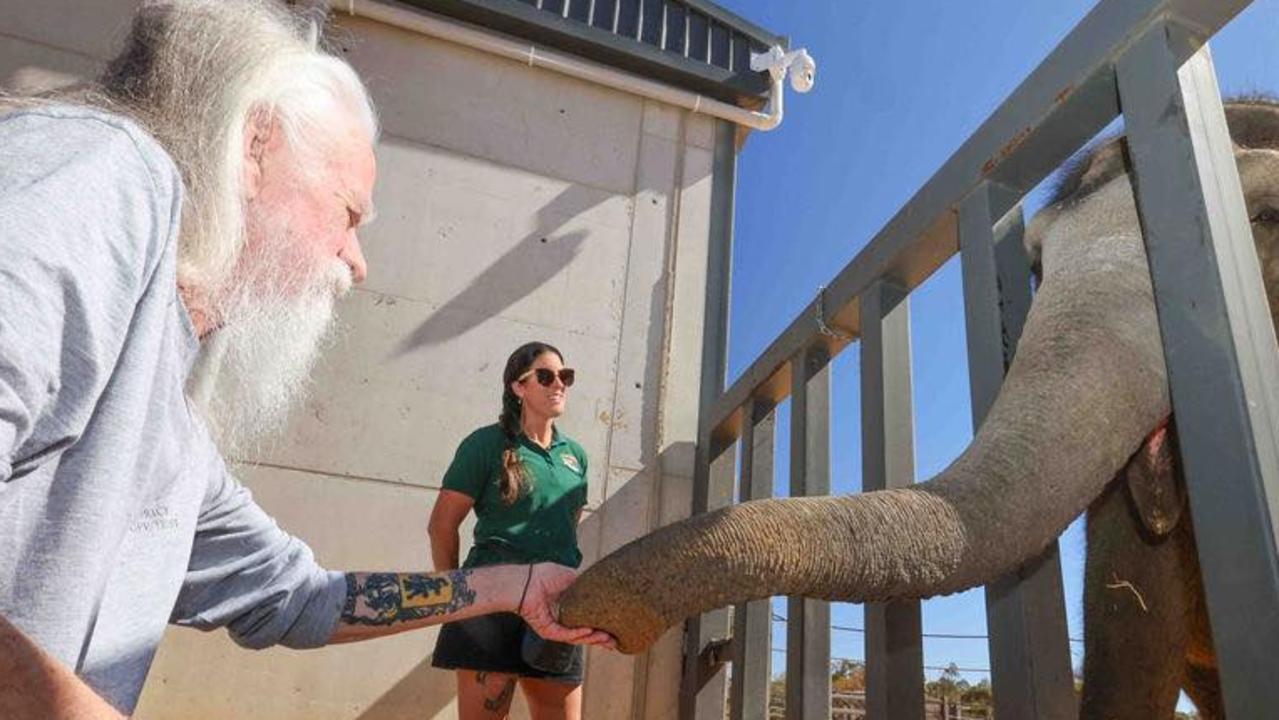'I've got Resting Sympathy Face – and it's not the blessing you think'
No I don’t have a second, I don’t know you!

Lifestyle
Don't miss out on the headlines from Lifestyle. Followed categories will be added to My News.
As friends share how frustrating their RBFs are, I’m left wishing I were a little more intimidating.
“Everyone assumes I’m mean before they meet me” is a phrase I’ve heard come out of countless friends’ mouths over the years. The amount of sweet, empathetic and selfless women I know who’ve been afflicted with the dreaded Resting Bitch Face (RBF) is mindboggling. And while I’ve been regularly reminded how lucky I am to have avoided a naturally furrowed brow and slightly downturned mouth, I’ve often wished some people would be a little more hesitant to approach me.
While these friends’ friendly comments are regularly confused for passive aggression, and they’re constantly asked, “Are you mad at me?”, I have the opposite issue. People won’t stop opening up to me.
I now feel intense jealousy towards them, because when I’m running 15 minutes late to work and someone stops me in the middle of a busy walkway to ask for “another point of view” on their current friendship tiff or moral dilemma, I could really do with an RBF.
Don’t get me wrong, I’m not cold-hearted. I’ll happily listen to people’s problems, give advice, direction, whatever they need. But after being stopped to offer assistance every other day for a whole week, you can’t help but wonder – why me?
It’s because of my Resting Sympathy Face (RSF).

Open body language
While I can’t tell you the specific features that make up an RSF, I know that it’s certainly not my behaviour that’s inviting strangers’ emotional dumps.
As clinical psychologist, researcher and founder of The Calming Suite, Dr Alissa Knight explains to Body+Soul, there are facial expressions and body language that can signal the kind of openness these strangers are after.
Eyes
“You will be able to notice openness, empathy and kindness in a person’s facial expressions by looking firstly at their eyes. The person’s eyes will be soft, deep, inviting, warm and like you are lost in the essence of an “old soul”. They will offer sustained eye contact, and sometimes you can even see their pupils are quite dilated which signals they are receptive and interested.”

Eyebrows
“Their eyebrows are often placed neutral, not raised, nor furrowed. But at the same time, the corrugator muscles in the eyebrow may pull them in and up, signalling concern and genuine care.”
Posture
“They tend to have an open, upright posture whereby they have uncrossed arms and legs, with their knees turned inward, signalling they are attuned to what you are saying, and care.”
Mouth
“Their mouth will often host a slight smile, lips gently pressed to show empathy, and their cheeks will be high. Their entire face will show an expression of active listening, heightened state of awareness, and connectivity with the other person through gentle, subtle expressions such as leaning in, mirroring, and nodding.”

Undoing Resting Sympathy Face
I’ve tried to signal to the general public that no, I’m not the right person to listen to your concerns, walk you to where you need to be, or hear your friend’s moral dilemma right now – I’m perpetually late and I don’t know where I am.
I’ve furrowed my brow and tensed my jaw a little more, walked faster, kept my big over-ear headphones permanently on my head and yet, just this week, three people started talking at me, assuming that even with music blasting in my ears, I’d love to offer them counsel.
I’m not saying it’s the worst affliction. I know it’s a compliment that people feel comfortable opening up to me, but these strangers are approaching me on the street, the bus, the office, the pub, the doctor’s office.

I’ve chatted to multiple people about the phenomenon over the years, and from my personal research pool of friends, family members, mental health experts and acquaintances, Resting Sympathy Face affects a lot more people than you think.
Knight explains, “Many people essentially labelled a gifted 'Trauma Dumpee’, will often describe their experiences as this bewildering phenomenon where they seem to walk around publicly with a neon sign stuck on their forehead, 'Come Dump on Me, I am Your Girl'.”
Please plan your trauma dumps
While people approaching me for help, advice, an opinion, directions, band-aids, sunscreen, and the like is okay, the trauma dumps from strangers aren’t.
I’m not out to deter people from sharing their feelings and being open about their struggles. It’s important to get things off your chest, seek help and talk through things. But for the love of God, please take a second before you trauma dump.

You may think people struggle to be vulnerable and choose to only confide in a trusted friend, wise parent or patient loved one. Nope, anyone with an RSF is also on the list.
I’ve lost count of the amount of people who have, without warning, told me in an unnervingly upbeat tone about the biggest trauma they or someone they know has experienced within the first few hours or less of meeting me.
Knight says that trauma victims may struggle to know who among their loved ones or complete strangers is a safe space and a real source of validation.
“What is mostly concerning to me as a clinical psychologist who specialises in trauma, is the potential risk for a person hearing, for example, stories of domestic violence, sexual/physical assault, gross childhood neglect, even animal cruelty.”

“Most of the time, due to their inherent nature of being a kind person, quite a high number of Trauma Dumpees may find it hard to turn to a stranger seemingly in stress and say “I am so sorry for what you are going through, but I just do not have the capacity to hear this”. And this may be problematic because despite being a gentle, kind person, the trauma dumpee themselves may also have gone through extreme trauma and been a victim of maltreatment.”
So regardless of whether they’ve processed their own trauma or not, hearing accounts from someone else “can trigger their body to go into an immediate flight-fright-freeze reaction”.
She adds that on the other hand, even those who have never experienced trauma themselves can “start to internalise the stories in their mind” and “feel completely overwhelmed with anxiety” from just imagining the stories they’re being told.
Compassion fatigue and a change in worldview are also concerns, Knight notes.

Advice for those who can’t help their face
You probably already know how best to enforce healthy boundaries in a relationship or with work colleagues, but as the clinical psychologist points out, “in the scenario of being approached by a stranger on a bus, for example… you often require a very quick, direct, and effective way to do it.”
She suggests following the ‘1,2,3 Breathe, Exit Me’ strategy:
#1. React with a genuinely kind and sincere expression
Knight shares that reacting with genuine sympathy to someone dumping quite heavy comments on you “is always accepted well by the other person, and gives you an avenue to then exit without confrontation.”

#2. Share your feelings
“I know I do not know you, but I am genuinely really [sorry, happy, excited] to hear that”.
#3. Focus on your proximity
The expert says that taking a “subtle step backwards and turning your shoulders facing away from them” can signal that you are listening, while delicately indicating that you need to go.
#4. Breathe
“Take a deep breath”, with a “gentle, subtle smile on your face as you breathe out.”
#5. Exit me
Knight suggests kindly and sincerely now saying, “I do really have to go, unfortunately. I hope you have a chance to open up to someone about this more, as it sounds really important, and you deserve some help with that”, before turning your shoulders fully to the back and leaving.
This last step may be tricky if you worry about offending people, but she says it’s “by no means rude, or lacking compassion”, as you’ve “stated that you heard them, validated what they are going through, but also that you do need to go”.
More Coverage
Originally published as 'I've got Resting Sympathy Face – and it's not the blessing you think'





